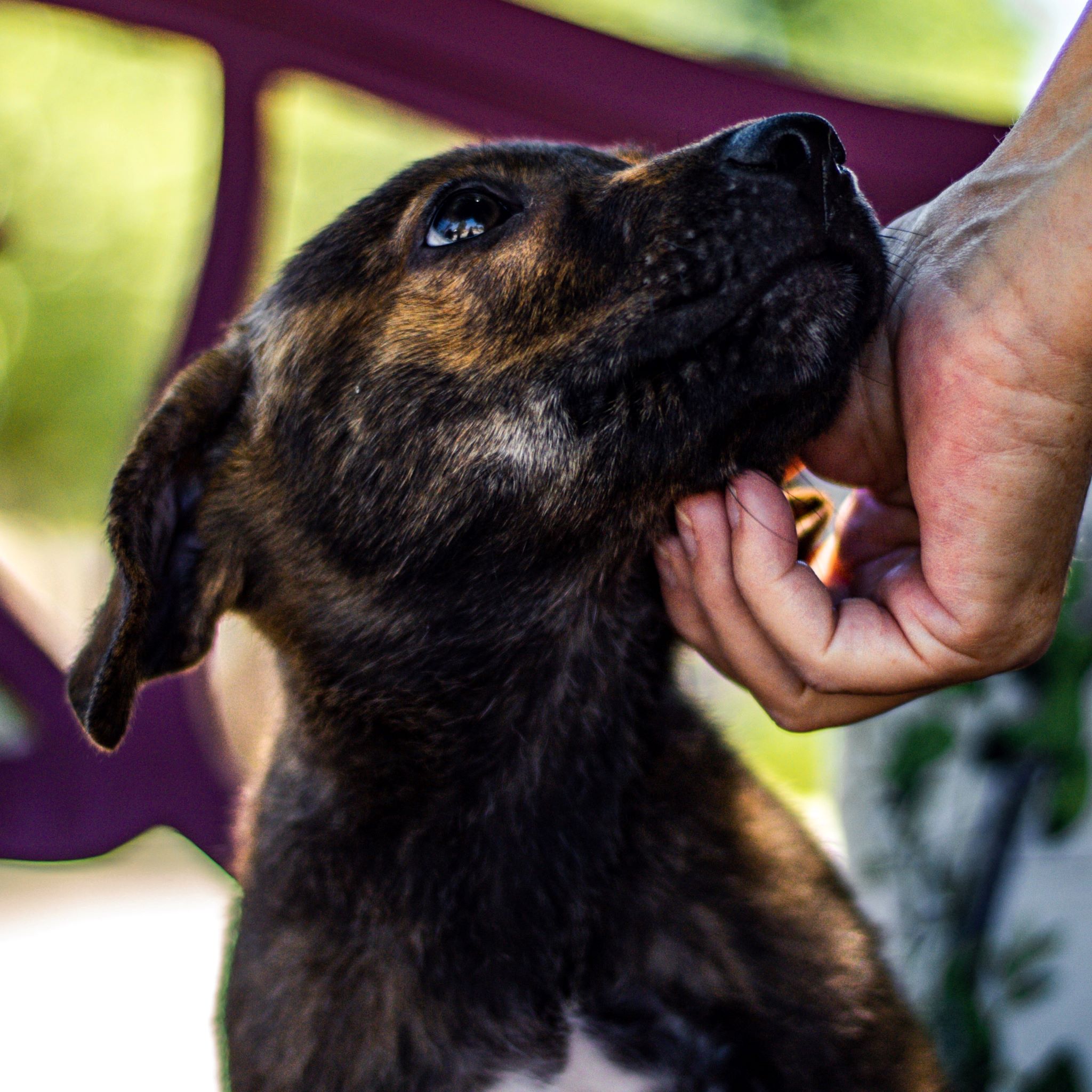Perfect pedigrees or marvellous mutts?
There are so many different types of dogs out there that it can be hard to choose the right one for you. It doesn’t help that there is a lot of conflicting advice. Some people advocate for mixed-breed dogs, while others push for purebreds.
Dogs are split in two categories, mixed-breed or purebred dogs. To help you with your journey to becoming a dog owner, the AdoptOrBuy team have created a guide to help you decide what type of dog is right for you.
To start, let’s explain exactly what a mixed breed and a purebred are.
Mixed-breed
Also called mutts, crossbreeds, or mongrels, mixed-breed dogs have either an unknown or mixed heritage. Their ancestors were likely mixed breeds themselves. While it is possible to get a mixed breed dog’s DNA tested to determine which breeds might be in their genetic makeup, this is often expensive and so is not routine. A lot of “designer dogs”, such as Labradoodles and Cavapoos, might be considered mixed breeds, since they are not recognised as purebreds by most breeder associations; however, their ancestry tends to be better recorded than that of the average crossbreed.
Purebred
A purebred dog is one whose ancestors (parent, grand-parents, and so on) are all from the same breed. The breed has a particular genetic makeup that is passed down through the generations of dogs. This means that all dogs from a certain breed will be quite similar in appearance , behaviour and temperament. There is a breed standard that can be used to compare an individual dog to the breed ideal in terms of looks.

Why does a dog’s breed matter?
It’s important to pick the right dog. Living with an incompatible dog is at best difficult, and at worst disastrous. The advantage of purebred dogs is that their characteristics are well known and recorded. You can easily look this information up on the internet, or speak to a veterinarian, dog trainer, or breeder. Everything from size to temperament and common health issues are well documented in purebred dogs.
With mixed breed dogs, it can be trickier to tell. With some mixed breeds, you might be able to guess their heritage from their appearance or behaviour. At other times, a mixed breed dog’s heritage may be a complete mystery.
Health
It is a sad fact that certain health issues are common in purebred dogs. German Shepherds are prone to hip dysplasia, flat-faced breeds such as the French Bulldog often have breathing issues, and Dalmatians frequently suffer from bladder stones.
The hard work of responsible breeders has helped somewhat; a study by Wisdom Health and Genoscoper Laboratories (2018) showed that certain diseases have actual been eradicated from some breeds. There are reputable breeders that are working hard to improve the health of their animals. Alas, purebred dogs are much more likely to have a recessive disease when compared to mixed breed dogs. Fortunately, not every purebred dog will inevitably develop the conditions that their breed is predisposed to. Many purebred dogs live long happy lives, thanks to the good care they receive from their owners, and the careful work done by responsible breeders.
Mixed breed dogs tend to have what is called “hybrid vigour”. This means that they tend to be hardier than their purebred cousins because they have more genetic variety. As a result of this, mixed breed dogs are less likely to have heritable illnesses and conditions. Wisdom Health and Genoscoper Laboratories’s study (2018) showed that while mixed-breed dogs may carry recessive diseases in their genes, they are much less likely to have to the disease.
Despite the advantages of hybrid vigour, a mixed breed dog may still have health problems, due to accidents or just bad luck. It is also possible for your mixed-breed dog may inherit a genetic condition from a purebred ancestor. For example, a German Shepherd crossbreed may develop hip dysplasia due to its ancestry.
Owner perceptions
According to one Hungarian study from 2017 (Turcsán et al.), owners of mixed-breed dogs feel that these animals are less sociable and calm than their purebred counterparts, and tended to show more problematic behaviour. However, the study showed that mixed breed dogs are just as trainable, if not more so, than purebred dogs.
Some mixed-breed dogs do have issues with socialisation and calmness, but that is because a lot of mixed-breed dogs are rescue animals, and may have had difficult lives before then. It is also important to realise that purebred dogs may also have had difficult experiences in their lives that lead to behaviour issues: it is not a genetic issue. Proper training and socialisation are vital for any dog.
Conclusion
Which type is right for you, the mixed-breed or purebred dogs?
Meeting the dog you are interested in would be ideal, but the characteristics are helpful in getting a better idea. Alternatively, you can work with a reputable person or organisation that will help match you with the right dog.
Many experienced breeders or rescue organisations are good at matching people with animals. They will typically ask questions about your lifestyle, or request that you fill in a questionnaire. This way, they will have a good idea about what kind of dog is most suited to you.
The truth is that ultimately, whether a dog is right for you has more to do with that dog’s individual characteristics than its heritage. A dog’s breeding can give you clues about the dog’s size, appearance, behaviour, and temperament; but it isn’t a guarantee. So don’t worry too much about a dog’s pedigree or heritage when looking for a pet. Concentrate on the type of dog that is right for you.


